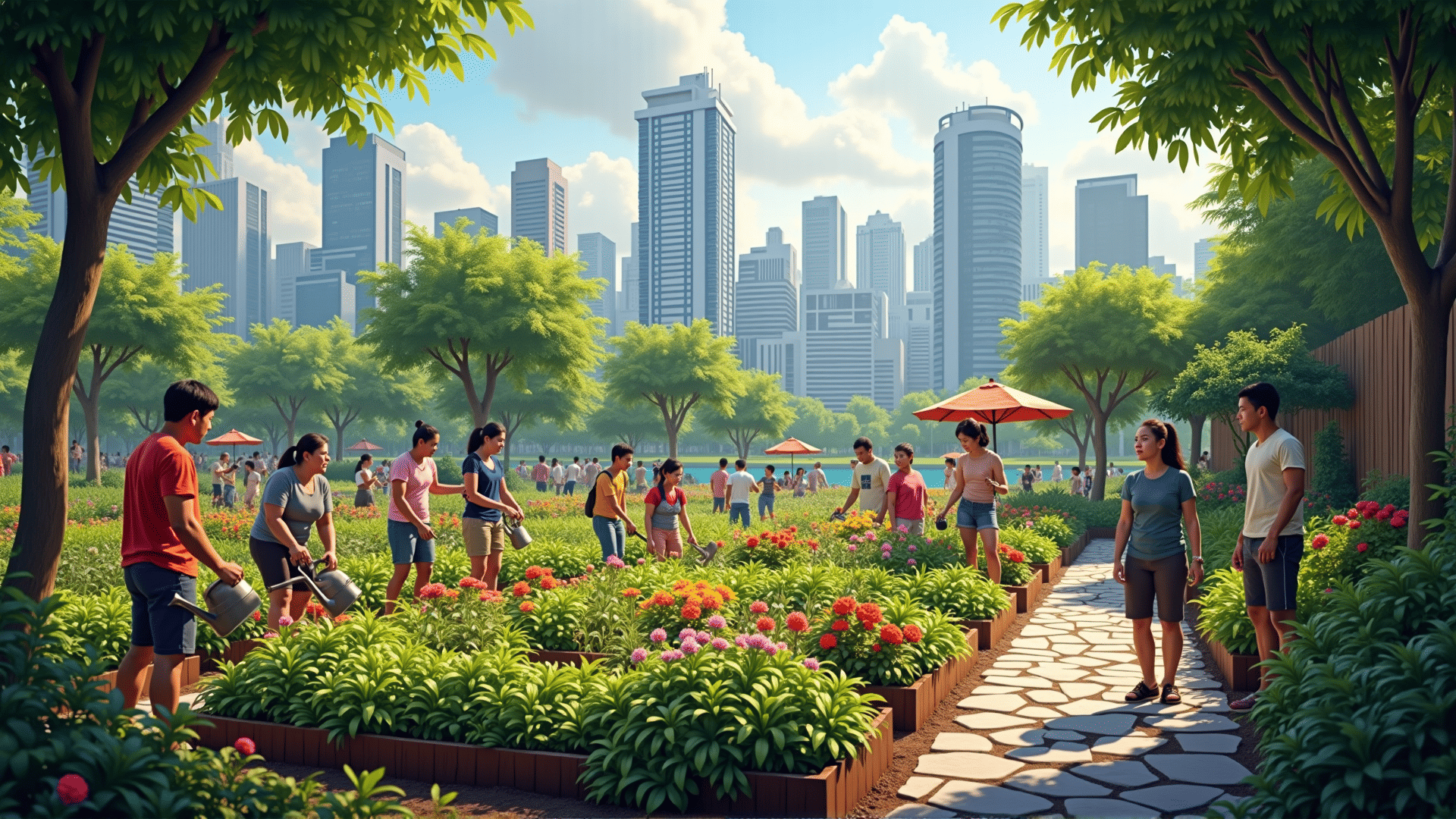In recent years, the concrete jungles of our metropolitan areas have started transforming into lush, thriving ecosystems, thanks to a burgeoning trend—urban gardens. These verdant spaces bring a breath of fresh air to city dwellers and promise a more sustainable and interconnected way of living. At the heart of this movement lies an initiative dedicated to enhancing the quality of life through green spaces, eco-friendly practices, and vibrant community involvement.
Urban gardens are more than just patches of greenery amidst sprawling development; they are vital communal resources that have profound impacts on both people and the environment. These gardens offer a serene escape from the hustle and bustle, providing a refuge where city dwellers can reconnect with nature. They become invaluable spots for relaxation, introspection, and rejuvenation, all within the confines of urban settings.
One of the most significant benefits brought about by such gardens is their ability to promote sustainable practices. Residents are educated and encouraged to engage in activities like composting, rainwater harvesting, and integrated pest management. By incorporating these eco-friendly techniques, urban gardens serve as a model for reducing waste and conserving resources. They effectively demonstrate that sustainability can be achieved even in the busiest of settings.
Moreover, these initiatives foster a sense of community. The act of planting, nurturing, and harvesting together brings people closer, breaking down the barriers of modern-day isolation. Participants, regardless of age or background, are united by a shared goal—a healthier, more sustainable environment. Community events, workshops, and shared harvest festivals further strengthen these bonds, transforming neighborhoods into tightly-knit collectives brimming with a sense of purpose and belonging.
Educational opportunities abound in urban gardens as well. Schools and local organizations often collaborate with garden projects to teach children about ecology, biology, and nutrition. This hands-on learning empowers the younger generation, instilling in them a respect for nature and an understanding of sustainable living that extends beyond the classroom.
In addition to the social and ecological benefits, urban gardens also contribute significantly to improving the physical environment. They enhance air quality, reduce urban heat, and support biodiversity, creating a habitat for pollinators and other beneficial wildlife. These changes lead to more resilient urban areas capable of withstanding environmental challenges.
As urban gardens continue to proliferate, they stand as beacons of hope and progress, symbolizing a future where cities harmoniously coexist with nature. By knitting together communities, promoting eco-friendly habits, and enhancing the urban landscape, these gardens play a pivotal role in crafting a healthier, more vibrant future for us all.
